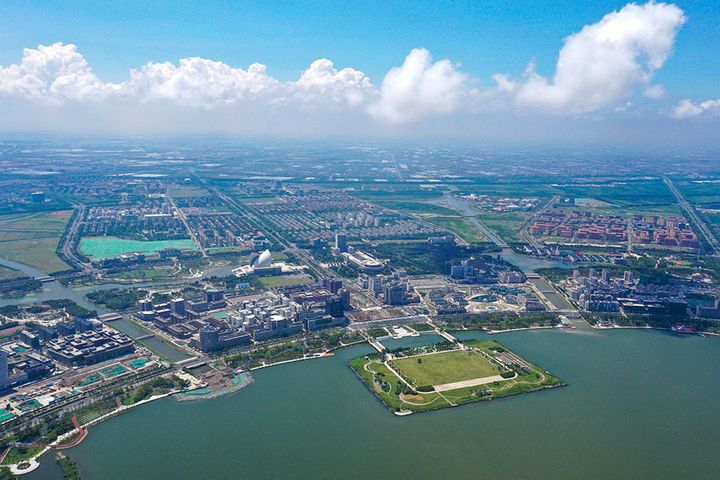 How Will Lingang's Addition to Shanghai FTZ Spur Higher-Level Opening Up?
How Will Lingang's Addition to Shanghai FTZ Spur Higher-Level Opening Up?(Yicai Global) Aug. 21 -- Lingang New Area, which was added to the Shanghai Free Trade Pilot Zone yesterday, will take the lead in the Yangtze River Delta region's next round of reform and opening up and focus more on working with the region on innovation and development than the FTZ's other areas. In development terms, it will be the most internationally recognized FTZ.
Lingang New Area will focus on the risk and stress tests of the open economy while looking to provide convenience in investment and management, free access of goods, convenient financial flow, high degree of open transportation, and quick connectivity to obtain information between it and overseas regions. It will also be the most competitive free trade zone when compared with internationally recognized peers.
Shanghai's FTZ needs to transform from measuring up against new international economic and trade rules such as the Trans-Pacific Partnership, the Transatlantic Trade and Investment Partnership from Japan, Europe, the US and other developed nations, to matching up with those countries' domestic policies and institutions. This means not only institutional breakthroughs but also in policies.
In addition, Lingang has proposed targeted policies and system design in terms of free flow of high-end talent, data and information.
For instance, it has eased restrictions on admitting high-end talent into the modern service sector and issued more open and convenient policies regarding entry and exit to and from China and for permanent residency. The new area has set up a 'green channel' for the granting of work permits as well as permanent or long-term residency to leading experts and teams in scientific research and innovation as well as other top-level overseas talent.
Regarding free flow of data and information, the FTZ emphasizes building a secure and convenient channel dedicated to international Internet data, piloting security assessment of cross-border data flow, implementing the safe and orderly flow of data on the global Internet, and actively participating in leading global exchanges and cooperation in the digital economy.
In particular, Lingang stresses the implementation of a globally competitive taxation system and policies. For example, it will levy corporate income tax at a 15 percent reduced rate on companies in the research, development and production of integrated circuits, artificial intelligence, biomedicines, civil aviation and other key sectors that meet the standards and are located in the new area within five years of their inception.
Editor: Liao Shumin